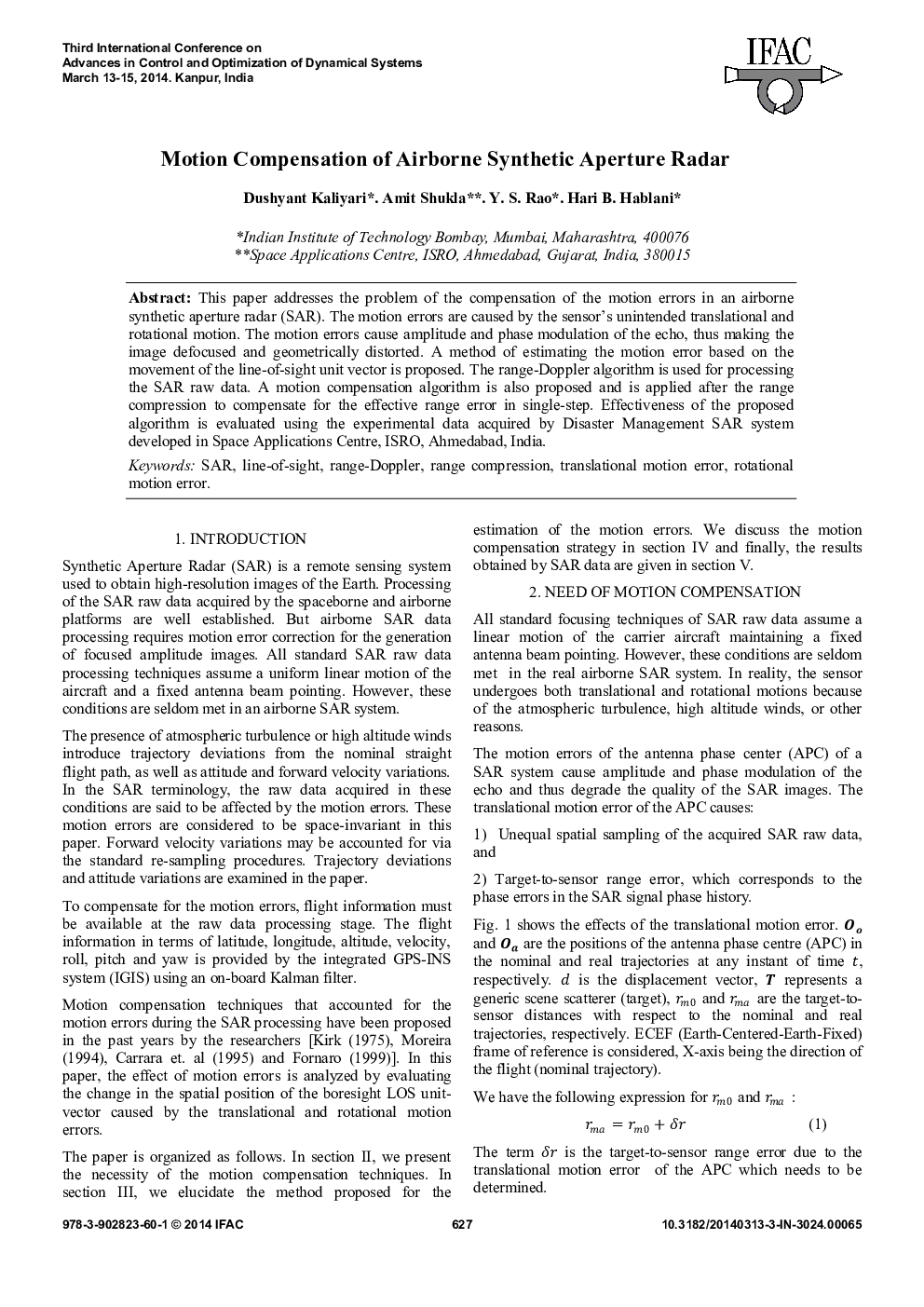| Article ID | Journal | Published Year | Pages | File Type |
|---|---|---|---|---|
| 713424 | IFAC Proceedings Volumes | 2014 | 8 Pages |
This paper addresses the problem of the compensation of the motion errors in an airborne synthetic aperture radar (SAR). The motion errors are caused by the sensor's unintended translational and rotational motion. The motion errors cause amplitude and phase modulation of the echo, thus making the image defocused and geometrically distorted. A method of estimating the motion error based on the movement of the line-of-sight unit vector is proposed. The range-Doppler algorithm is used for processing the SAR raw data. A motion compensation algorithm is also proposed and is applied after the range compression to compensate for the effective range error in single-step. Effectiveness of the proposed algorithm is evaluated using the experimental data acquired by Disaster Management SAR system developed in Space Applications Centre, ISRO, Ahmedabad, India.
